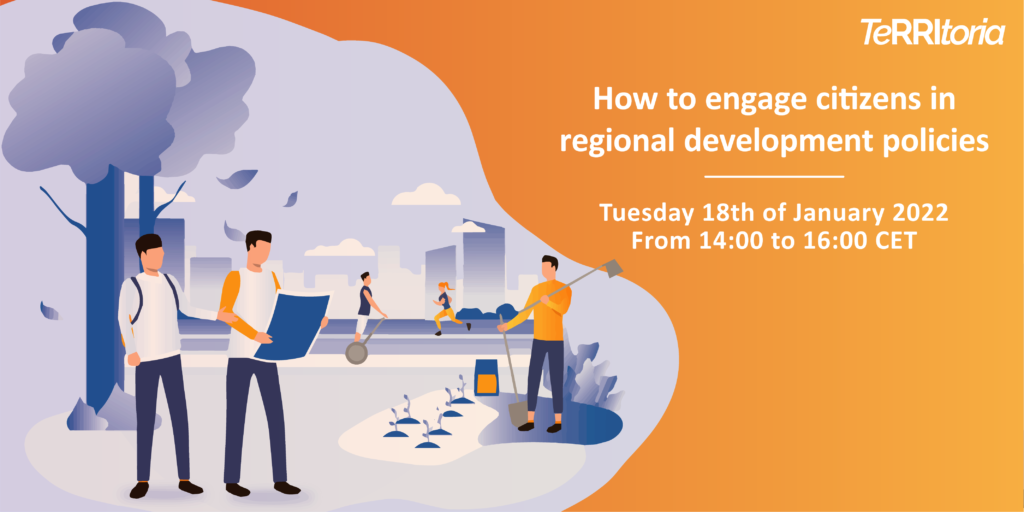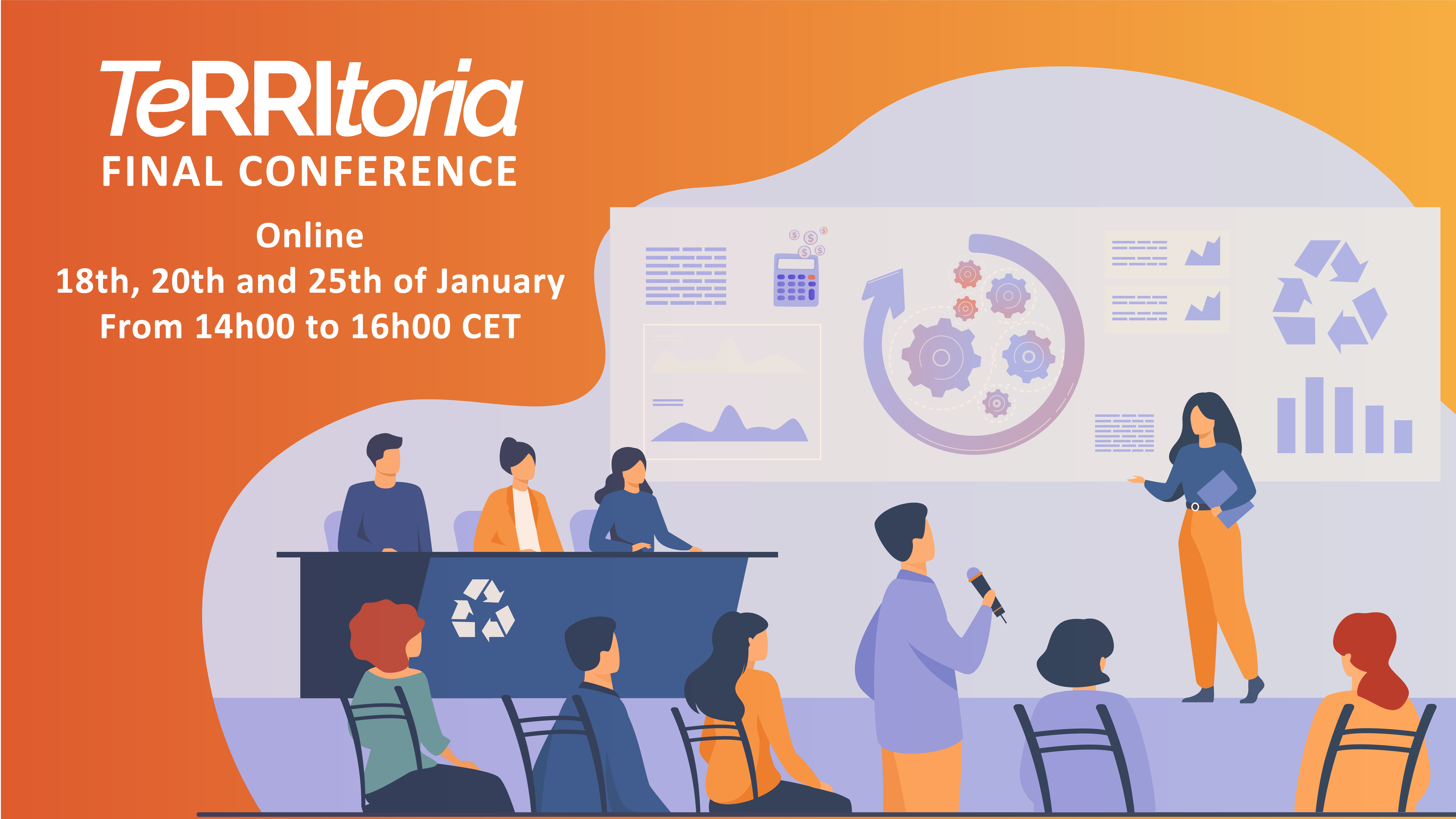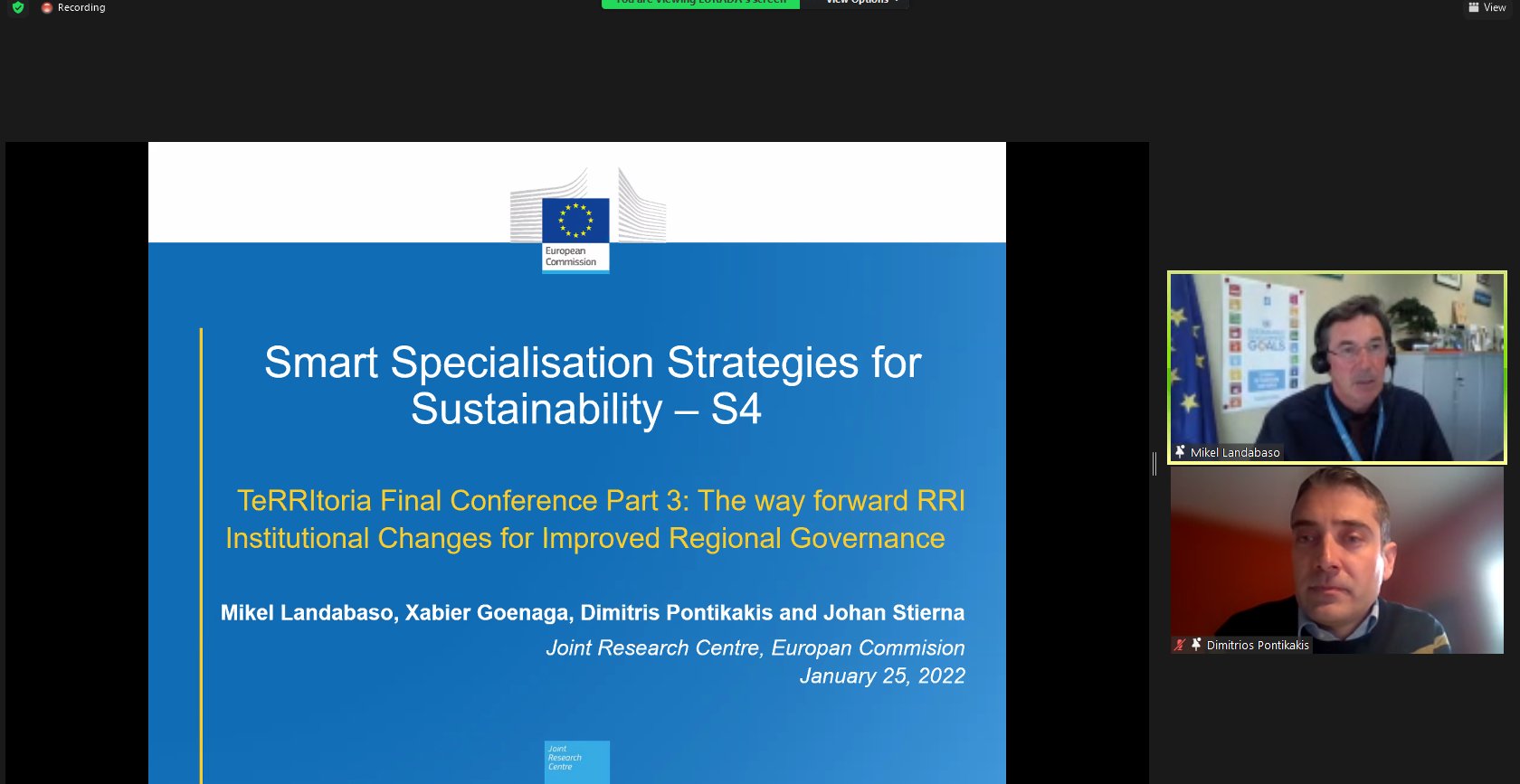How to engage citizens in regional development policies
The TeRRItoria final conference kicked off on January 18th, 2022 for the first of three sessions on the theme of Regional Research and Innovation (RRI) Institutional Changes for Improved Regional Governance. With the topic of How to Engage Citizens in Regional Development Policies, the first session moderated by Esteban Pelayo, Director of the European Association of Development Agencies (EURADA), featured a panel of experts from across Europe sharing their knowledge, practical experience, and recommendations on the subject.
Francesco Amodeo of the Directorate-General for Regional and Urban Policy discussed how citizen engagement is more important than ever in policy-making and reminded us that policies are for and with citizens, therefore engagement with citizens needs to be continuous throughout a project. A new challenge facing regions is the competence required to open governance to citizens, something Francesco is helping to address through a couple of pilot projects. To manage the participatory process regions and authorities need to have both competence and final resources. Civil society is closely linked with the territory and can bring forth ideas for innovation, but they need financial and technical assistance to share their knowledge and ideas at a level that can have an impact, therefore improving competences of managing funds is an important challenge to work on.
Coming from the TRANSFORM project, Angela Simone elaborated on the importance of citizen engagement and public decision making as a whole being done in a meaningful way, and introduced four elements that make up good, meaningful citizen engagement: integrity, feasibility, actionability, and transparency. Angela positions co-creation as a means to involve citizens, their energy, creativity, and ideas to create better options and solutions for societal challenges to innovation. In order to meaningfully do this, at the regional level questions such as why do we need citizen engagement, what is the purpose, and why do we want it, need asked before determining the best methodology for citizen engagement.
Using his experience in the healthcare sector, Gorka Sanchez from the CHERRIES project presented how RRI can be part of any solution, as it takes patients, the final users, into account from the beginning to ensure accuracy and efficiency of the final solution, while also making the process more fair and transparent. Gorka puts forth how RRI could be a tool for success in terms of transparency and social empowerment of new solutions – not only with the people, but from the people.
Tine Ravn from Aarhus University highlighted some of the challenges pertaining to involving citizens in policy making, such as lack of formalized decision-making procedures, limitations to one-way dissemination activities, and the prioritising of experts. In response to these challenges, she also brought forth some recommendations including to enforce political commitment, more formalized rules, and to build on existing and established decision making processes, as well as drew on some recommendations from the RRI tools project.
From the NTNU Norwegian University of Science and Technology, Thomas Berker discussed the tensions that exist between urban and rural areas in both research and policy making processes. As cities hold over half of the population, rural areas are often somewhat forgotten, as the focus of research and citizen engagement is directed at cities and their inhabitants. He argues that meaningful citizen participation requires addressing this rural-urban tension and recognizing the different needs of rural communities. Bridging this gap will make local engagement easier by universities, research, and policy makers, if citizens feel the work and research being done is relevant for them.
Agatha Filimon from ADR Nord-Est shared her experience on how decentralisation in smart specialisation is a bottom-up process and should start with engaging citizens on their needs and challenges, rather than directly asking what they want to innovate. It is a process of establishing priorities, identifying challenges, gaps, and solutions through a large consultation, known as the entrepreneurial discovery process. It is a fully participatory process that involves quadruple helix actors, and from the beginning, the consultation is public so individual citizens can access it, not only through non-governmental organisations (NGOs).
In this session, the panelists shared their invaluable knowledge and experience to highlight some of the challenges facing citizen engagement, while also suggesting some practical solutions to how to address them. One of the common points that re-emerged throughout these discussions is the need for citizen engagement to be meaningful, inclusive, and not a stand-alone part of the process, but rather integrated throughout it. RRI can be valuable in developing policies that are more aligned with the needs and challenges facing regions and by engaging citizens in a way that makes their voices not only heard, but acted upon.





